Wildlife (2018) is the directorial debut of actor Paul Dano, who co-adapted the screenplay from a book alongside his wife Zoe Kazan (of The Big Sick fame). It stars Carey Mulligan and Jake Gyllenhaal as a married couple beginning to drift apart as their teenage son (played by Ed Oxenbould) watches on.
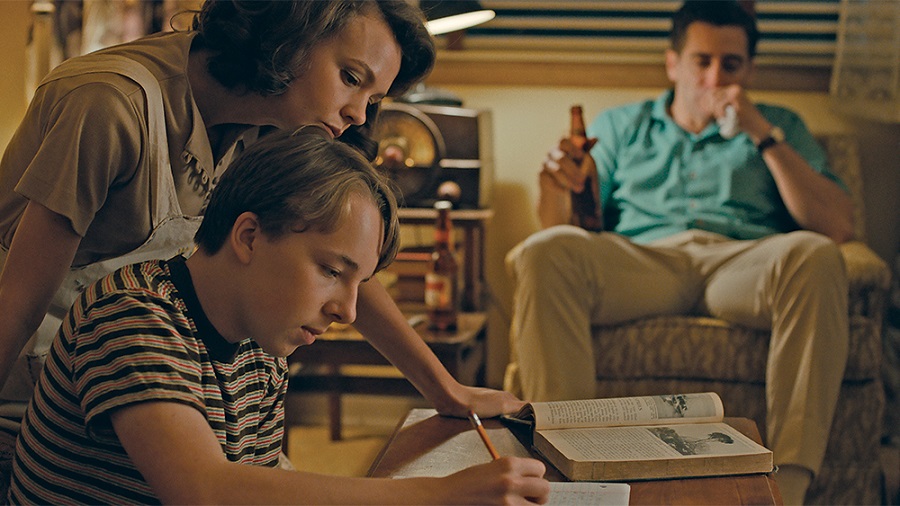
Here we go again with another film adaptation of a book with a precocious fly-on-the-wall artistic-type silent protagonist. If you’ve followed my blog in the past, you’ll know I often harp on film adaptations of books that fail to translate a character’s inner thoughts into a visual medium. It irked me in films like The Sisters Brothers, The Miseducation of Cameron Post, and To All the Boys I’ve Loved Before. It’s not that I uniformly dislike quiet-type characters, or that such characters can’t ever work – they are very popular in books after all – moreso that such characters require greater creative liberties from the filmmaker to avoid them coming off as passive or obscure. Film is a visual format, and we want our characters to reveal themselves through actions. Sure, it’s possible for a film to get around this with voiceover or expository dialogue, but that’s usually a strictly-inferior method than just showing us.
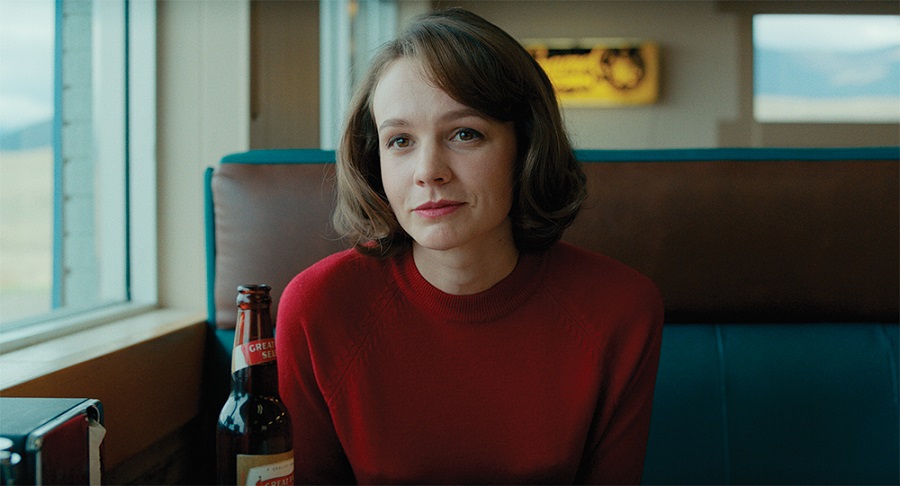
The good news is that, while Wildlife gives us such a character, it still works because the character’s quietness and obscured intentions are directly tied to the themes of the film. Young Joe watches on with nary a word as his parents’ marriage begins to fall apart. Dano wisely places the focus of the action primarily on his parents, Jeannette and Jerry, and simply inserts Joe into the background. It’s a technique reminiscent of Harry Potter or even Sicario as our heroes are put in outlandish situations and settings to act as the audience’s eyes to the action. Joe is rarely the instigator of on-screen action; he is the definition of a passive protagonist, normally a negative trait but here intentional to highlight his feeling of powerlessness.
In the background of the film looms the threat of a nearby wildfire, which is drawing scores of men (including Jerry) to prevent its spread. The fire provides two essential roles for the purposes of the film. One, it is a metaphor for war, forcing the able-bodied men to leave their families and risk their lives for the safety of the community. The narrative of the film could have worked if it were an actual war film – as Joe and his mother must deal with the implications of a head-of-household being gone – with added tension thanks to the unknown element of a wildfire, which could arrive at any moment. Secondly, the fire is out-of-sight and hard to conceptualize from afar. Its true nature is concealed to Joe until he actually sees it with his own eyes…much like the true nature of his parents is not revealed to him until they come out naturally. That “hidden” quality, the suggestion of something more sinister lurking just out of sight, is a brilliant conceit to represent the fact that Joe’s idea of who his parents are as people is challenged by his confrontation with their true selves.
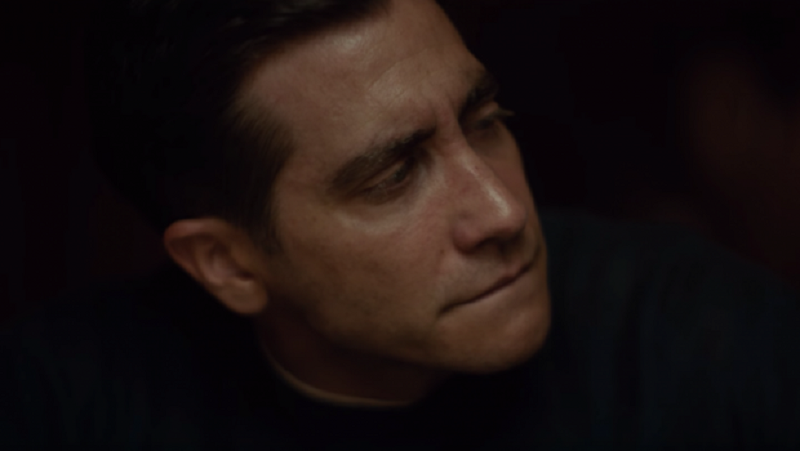
Jerry is initially an amiable and relatable character. Mild-mannered and polite, we sympathize and mourn with him as he is disrespected and kicked down by society. But slowly we (along with Joe) begin to realize that this shining example of a man is merely a facade, masking a monstrous and self-destructive creature incapable of adapting to changing circumstances in life. Similarly, Jeanette is portrayed as being fretful and worrisome as a simple reaction to her husband’s listlessness, but eventually we understand that this is an essential trait of hers as her erratic behavior becomes more pronounced. This is the benefit of telling the story through young Joe’s eyes: like a naive teenager with an idyllic picture of what a happy couple might look like, we too are blind to the true nature of the people we are dealing with.
Initially I believed that Jake Gyllenhaal’s casting was a mistake as his character ought to be more of an unlikable macho alpha male. However, after letting the movie sit with me for a while, I realized that it was kinda brilliant because it helps to put the audience in the right mindset to misinterpret him. We are ready to believe in his goodness at the start because of his likable demeanor, which makes the reveal of his many faults that much more impactful. Similarly, Carey Mulligan has played her share of slighted housewives in the past, so we are ready and willing to jump to her defense when things get rough, but in reality she is just as flighty and imperfect as her husband. By the end of the film we aren’t really supposed to sympathize with either of them despite starting out with the intention to, which to me is absolutely genius casting by relying of audience foreknowledge of the types of roles these actors generally play.
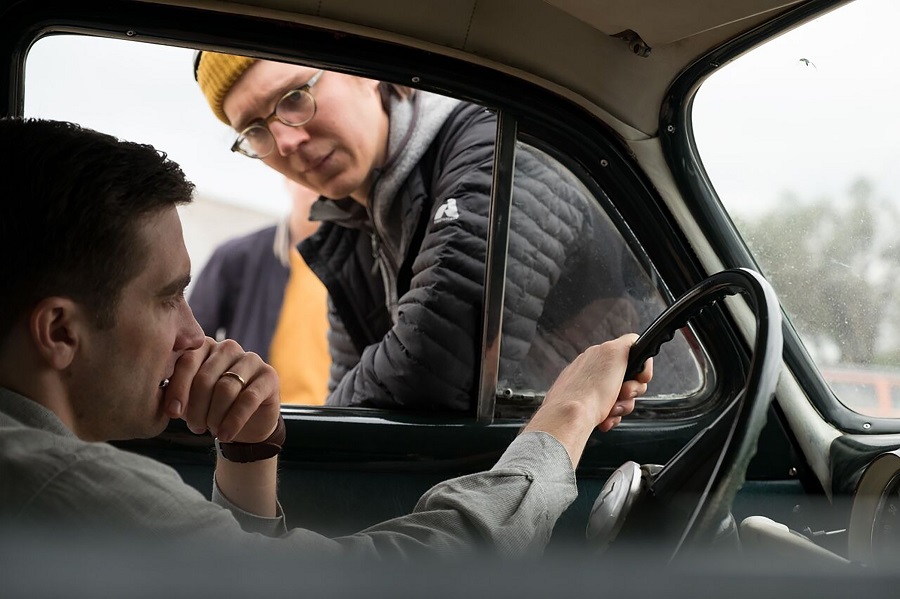
For a first feature, Dano does an adequate job with the technical side of the film. Viewers will note just how slow the film is, taking its time with long takes and sweeping cinematography to convey the slow and sleepy quality of the town. It’s a slow burn for sure (no pun intended), which matches the theme of the film as well…the tension in the relationship builds up to a crescendo over a prolonged period, and we along with Joe have to watch in horror as things gradually build and build to an inevitable climax. I can’t really fault the film for this as it’s a deliberate choice, but the fact remains that scenes did drag on a bit for me and I did feel the length of the film. It takes a while for the plot to kick in as the first half lacks a clear objective or purpose for our characters and I wasn’t sure what the film was even about yet.
Since I haven’t read the book, there are a few unresolved questions that I assume are covered in the original story that left me wondering. The title of the film, Wildlife, is never fully explained; the closest the film comes to referencing it is when Jeanette explains to her son that some smaller animals are killed in the wildfires but we shouldn’t waste energy crying over it. It could be argued that the wildlife is a stand-in for our characters, struggling to react appropriately in the face of danger, but I’d have to think on the film a bit longer to make that assessment. A side character is introduced in the form of Joe’s classmate and love interest, but her arc goes nowhere and I’m not sure what her purpose in the narrative is at all. There’s also a time jump towards the end of the film that I didn’t think was super well-handled; while I thought the ending was appropriate and elegant, the film rushes the moment too much, an especially odd phenomenon given how much the film takes its sweet time.
Conclusion
Overall, this is a surprisingly strong film, one that won’t be for everyone but definitely hits all the marks it ought to. It’s coy and subtle with its handling of information and development of its themes, giving the audience just enough to chew on without blatantly giving away its secrets on first pass. It’s a rare film that has gotten better with time for me, causing me to rethink my own judgments days after viewing and making new discoveries retroactively as I think back on the decisions made throughout. Already Carey Mulligan has been drawing raves and could be a dark horse candidate for Best Actress awards this winter, and I think the screenplay could realistically find its way into conversations as well (despite how stacked the Adapted Screenplay category is this year). Definitely seek this one out if it’s playing near you.
VERDICT: A-
All image rights belong to IFC Films and/or Sundance Institute.
-Austin Daniel
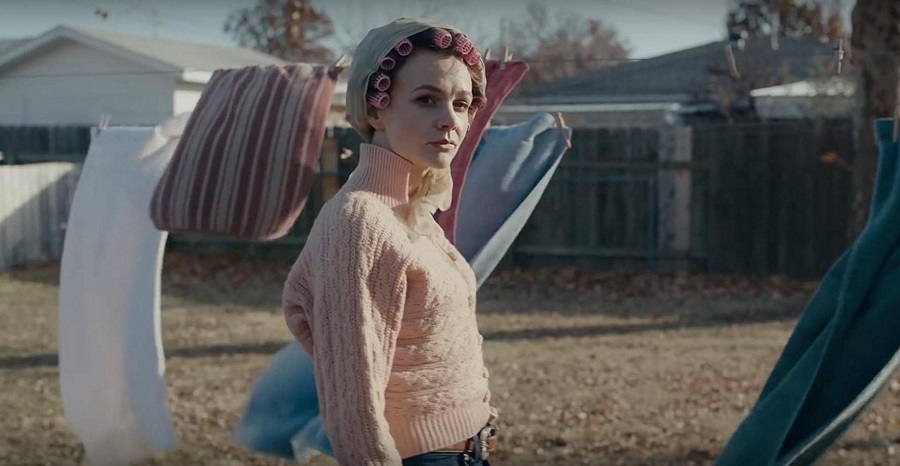
6 thoughts on ““Wildlife” Film Review & Analysis”